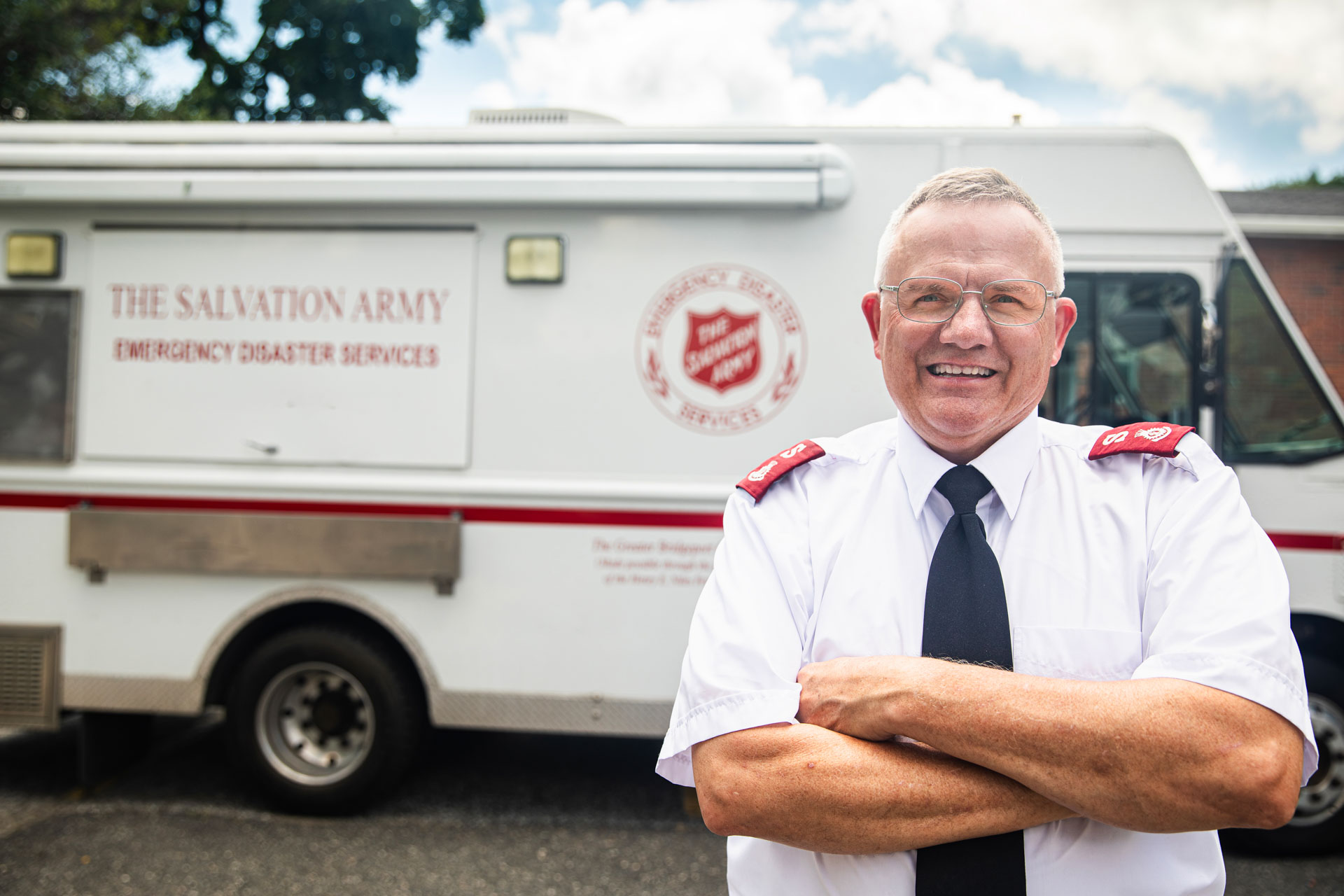Feeding Souls, Changing Hearts
by Hugo Bravo

Major Gilbert Parkhurst, corps officer in Danbury, Conn., talks about breaking the ice with baseball at ground zero, being introduced to disaster services as a teen, and why sometimes all it takes to change hearts and minds is a ministry of presence.
When I was serving at ground zero after 9/11, I saw a well-dressed man working for the FBI. I could tell he was tired, stressed, and beside himself from overseeing his own team. I said a quick prayer, asking God what I could say to this man who was clearly bothered and in pain. God responded, “Tell him you’re a Red Sox fan.” I was in New York. Was that really the best thing to say right now? Again, “Tell him you’re a Red Sox fan.” I went up to the FBI agent and said, “What would you say if I told you I’m a Red Sox fan?” He started to laugh and said he was a Mets fan. It broke the ice immediately. Every night, the FBI agent would show up and ask, “Where’s that Boston guy?” We would eat together, talk about sports, and take a needed break from our respective roles.
The ministry of presence can change hearts. I was corps officer in the now-closed West Pittston Corps in Pennsylvania. There, we knew a local lawyer who for his own reasons did not like The Salvation Army. One day, the corps responded to a fire at a building used to store paper medical records. We served there all week, and for a month afterwards, we got calls asking if we could bring meals to the responders doing the cleanup. When the lawyer saw us there, he asked if he could pay to provide the meal to feed the Salvation Army team that night. He changed his own perspective. Sometimes all it takes is seeing work done in the name of God.

Major Gilbert Parkhurst with the Danbury Corps’ canteen truck.
At our youth group in West Pittston, there was a young man called Bernie. I learned through Bernie’s friends that he was well known as a drug dealer in the area. Despite that, he was still active in our youth group, even coming with us to do ministry in Massachusetts. As I worked with Bernie, I learned why he was involved in drugs. It wasn’t because he needed the money; his parents were both very successful. Selling drugs and getting into trouble with the law, Bernie said, was the only way that his parents, or anyone else, would pay attention to him. But being at The Salvation Army, he experienced a life change. He just wanted to be with people who loved him, and he found them at our corps.
I grew up as a Salvation Army soldier in Haverhill, Mass., just north of Boston. One night, during a Salvationist meeting for teenagers, the corps officer got a call that there was a fire downtown. The corps sergeant major said to me that I needed to come with him. We didn’t have canteens back then, so we made coffee, gathered snacks, and stopped to get donuts for the firemen. When we arrived, it was so cold that the water from the hose was turning to ice on the ground. The firemen were coming to us tired, cold, and with their heads down, but they perked up when we served them. That was the first time that I saw how important Emergency Disaster Services is, and today it’s my passion.
An advisory board member once asked me, “With all the work The Salvation Army does, why do you bother to feed people for free who are being paid to work?” To answer him, I brought him along to an EDS tornado response. He watched us and asked, “How do you know who just needs food and who needs an extra something, or a person to talk to?” I explained how I watch their hands, their facial expressions, and if they’re fidgety. From there, I know who to pull aside. From that day on, that board member understood why we do this. He became one of our best, most dedicated fundraisers.

